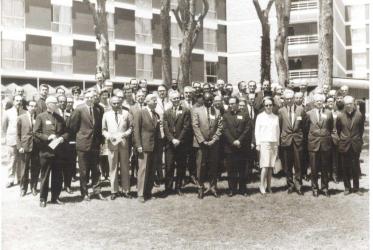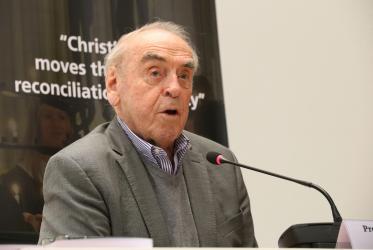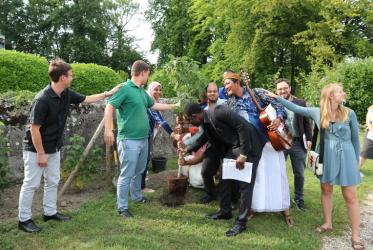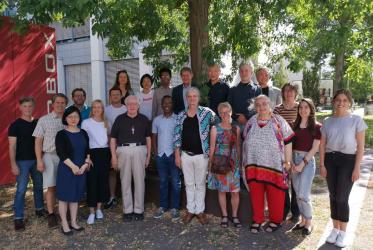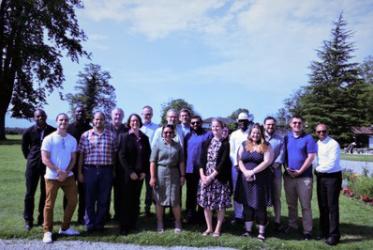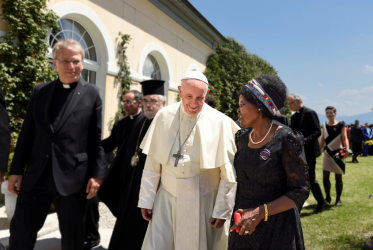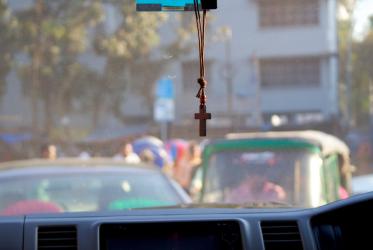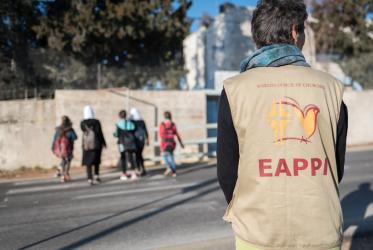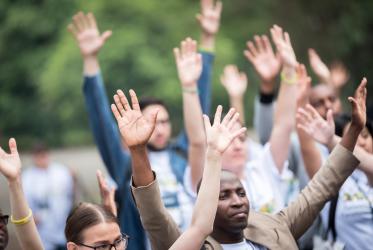Displaying 61 - 80 of 175
WCC welcomes new staff
11 February 2020
Consultation considers God’s mission in a fractured world
19 December 2019
Moltmann reflects on spirit of truth in a post-truth era
02 December 2019
WCC Executive Committee meets with eye toward busy future
20 November 2019
Bossey students explore the meaning of “belonging”
22 July 2019
Bossey gathers students for interreligious dialogue
02 July 2019
One year later: remembering a historical moment
23 June 2019



